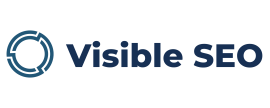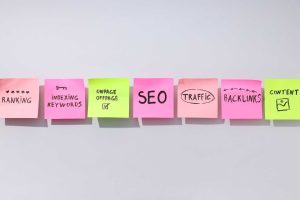Should All Websites Be Built With AI Search and SEO in Mind From This Point Forward?
Why Your Google Rankings Dropped (And What to Do About It in the Age of AI Search)
The digital landscape is shifting faster than ever. For years, businesses have understood that Search Engine Optimisation (SEO) is essential to being found online. But with the rise of AI-driven search engines – Google’s Search Generative Experience (SGE), Microsoft Copilot, ChatGPT-powered search tools, and countless others – the way people discover and consume information is fundamentally changing.
This raises a critical question: Should all websites from this point forward be built with AI search and SEO as top priorities?
The answer, unequivocally, is yes.
If you’re investing in a website today, ignoring AI search and SEO is like building a beautiful shop on a backstreet no one walks down. You may have the best products or services, but if potential customers can’t find you (or worse, if AI ignores you) your digital presence simply won’t perform.
In this article, we’ll explore why AI search is rewriting the rules, how it overlaps with (and depends on) SEO, and the undeniable benefits of designing your website with both in mind from day one.
The Evolution of Search: From Keywords to AI Answers
Let’s rewind briefly.
- Pre-2010s: Search was all about keywords. If you matched the search terms, you ranked.
- 2010s: Google refined its algorithm with signals like backlinks, site quality, and mobile responsiveness. SEO became a technical and creative discipline.
- 2020s: Search is moving into a new era. AI doesn’t just retrieve results, it creates answers.
Google’s Search Generative Experience (SGE) now provides AI-generated summaries at the top of results pages. ChatGPT, Perplexity, and Microsoft’s Copilot do the same. These tools don’t just show links – they synthesise content from multiple sources, presenting the user with a ready-made response.
This means two things for businesses:
- Traditional SEO rankings alone are no longer enough.
- Your content may be surfaced (or ignored) by AI engines.
Why SEO Still Matters (More Than Ever)
Some business owners wonder if AI will make SEO obsolete. The reality is the opposite:
- AI relies on optimised websites. These engines pull from sources they trust. If your website is technically flawed, poorly structured, or lacks authority, AI is far less likely to use it.
- SEO builds authority. Links, citations, and content depth are still critical. AI tends to quote or reference websites with established credibility.
- User intent remains vital. Even if an AI answer satisfies part of the query, users often click through to explore further, compare, or make a purchase. Without SEO, your site won’t be where they land.
In short, SEO is the foundation. AI is the evolution. Together, they define discoverability.
The Case for Building AI + SEO Into Every Website From the Ground Up
If you’re developing or redesigning a website today, here’s why you should bake in AI search readiness and SEO strategy from the very beginning:
1. Future-Proofing Your Investment
Websites are major business investments. Building without AI/SEO in mind is like buying a car without an engine – it looks good, but it won’t take you anywhere. Ensuring your site is AI- and SEO-ready protects its relevance for the next 5–10 years, no matter how search evolves.
2. AI-Driven Visibility
AI search doesn’t ‘list’ results in the traditional sense. Instead, it curates and summarises information. If your content isn’t structured clearly, with context-rich copy, schema markup, and authoritative signals, it risks being invisible.
Building with AI in mind ensures your content is easily understood and surfaced.
3. Technical Foundations That Matter
Speed, mobile optimisation, site architecture, schema markup, and crawlability aren’t just nice-to-haves, they’re essential. AI engines thrive on structured, accessible data. A website built with these in place ensures both humans and machines can navigate and interpret it.
4. Content That Works for Humans and Machines
Gone are the days of keyword stuffing. Today’s websites need natural, topic-focused, human-friendly content that also provides AI with clear signals about relevance and authority. That means FAQs, how-to guides, detailed service pages, and language that answers real-world questions.
5. Maximising E-E-A-T (Experience, Expertise, Authoritativeness, Trustworthiness)
Google and AI models alike prioritise content that demonstrates real expertise and trustworthiness. Building this into your site’s structure, from author bios to case studies and reviews, makes it easier to be referenced and recommended.
6. Competitive Advantage
Many businesses are still behind on this shift. By prioritising AI search and SEO now, you position your website ahead of competitors who are still stuck optimising for yesterday’s search.
Practical Strategies for AI + SEO-Ready Website Development
When creating or rebuilding a website, here’s what to prioritise:
Technical Setup
- Fast load speeds (optimised images, clean code, minimal bloat).
- Mobile-first design – Google and AI prioritise mobile usability.
- Schema markup to give search engines context about your services, products, and location.
- Clear site architecture with logical navigation and siloed content.
Content Creation
- Topic clusters instead of isolated keywords – cover subjects comprehensively.
- Conversational FAQs to match natural language queries.
- Localised content (where relevant) to feed AI with geographic relevance.
- Strong metadata (titles, descriptions, alt text) that describes content accurately.
Authority Building
- Showcase author credentials and industry expertise.
- Gather and display testimonials, reviews, and case studies.
- Secure high-quality backlinks through PR, partnerships, and outreach.
User Experience
- Accessibility standards (WCAG) to ensure inclusivity and compliance.
- Prioritise clarity and usability – AI may drive the click, but UX drives the conversion.
- Strong calls-to-action (CTAs) to turn visitors into leads or customers.
What Happens If You Don’t Build With AI + SEO in Mind?
Let’s be blunt: ignoring this shift is risky.
- Reduced visibility: Your site may not appear in AI-generated answers.
- Wasted spend: A “pretty” but un-optimised site looks good but won’t attract traffic.
- Lost credibility: Competitors who optimise for AI search will dominate visibility.
- Shortened shelf-life: You’ll be forced into expensive redesigns sooner than expected.
In today’s environment, AI and SEO aren’t ‘extras’, they’re the core infrastructure of discoverability.
The Benefits of Getting It Right
When your website is AI and SEO ready, you gain:
- Sustained visibility across both traditional search results and AI-generated summaries.
- Higher-quality traffic that matches real user intent.
- Trust and authority signals that position your brand as the go-to choice.
- Better ROI on your digital marketing spend, with a site that keeps performing.
- Adaptability to future shifts in search and technology.
Simply put it’s the difference between being found everywhere your customers look or not being found at all.
Conclusion: The New Standard for Web Development
The internet is entering an AI-first era of search. Users no longer simply type keywords and scroll; they ask questions, and AI delivers answers. If your website isn’t designed with this reality in mind, it risks being left behind.
SEO is still the bedrock of visibility. AI search is the new frontier. Together, they form the new standard for building websites.
So, should all websites be built with AI search and SEO in mind from this point forward?
Absolutely.
The businesses that embrace this shift now will own the visibility, trust, and customer journeys of tomorrow.
Tip: If you’re planning a new website or a redesign, make AI and SEO part of the foundation, not an afterthought. The future of discoverability depends on it.
Contact us today for a comprehensive site analysis and action plan.





